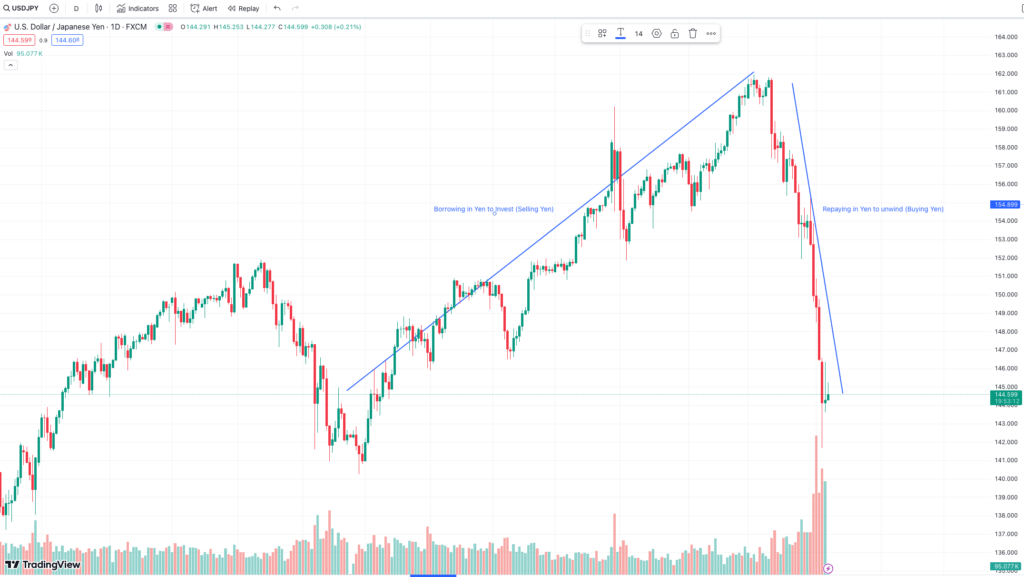As you might have seen in the news, or reflected in your own investments – the markets were a bit more volatile than usual this August. Kristian Manton, one of our financial advisers at Octopus Money, breaks it all down for us.
What caused the volatility in August 2024?
Over the last few weeks the markets went into a downturn (where the value of the companies in the stock market dropped over a period of time), especially in the US (which makes up about 60% of total global equity value). If you have any exposure to the US stock market, you will have noticed a dip in your investments.
There were some key drivers for this downturn:
- Fears of a US recession, shown by a higher unemployment rate and weaker performance by American companies like Amazon.
- A feeling the Federal Reserve (the US’s central bank, also called the Fed) has left rates too high for too long and the economy will now suffer as a result.
- Inflation may be sticky, which could trap the Federal Reserve – if a recession is on the way, usually they’ll want to LOWER interest rates, so people have more money. BUT, if inflation is sticky, and it’s going to stay around for a long time, then the Fed usually needs to RAISE interest rates, to tame and bring inflation down.
- US debt passed USD 35 trillion for the first time.
There is however, another less reported factor at play – “The unwinding of the carry trade”. (This is for the real money nerds – if this is you, keep reading.)
What is “the unwinding of the carry trade”? (A fairly concise explanation)
In a nutshell, it’s when you make money because of the difference in the interest rates of two assets. For example, this would be like borrowing money from a bank at 2% to lend it to your friend at 6%.
Fund managers often do this with currencies. So, investors have been borrowing money in Japan at almost 0% rates to invest in markets both in Japan and internationally. This drove the Yen lower as investors borrowed in Yen to then buy Dollars (selling Yen). Buying or borrowing an asset (in this case Yen currency) like this is called taking a ‘position.’
Investors would then use this borrowed money to invest and achieve a return (this is called ‘leverage’.)
Earlier this month the Japanese central bank unexpectedly raised interest rates, counter to all other major central bank policies. This caused investors to be caught on the wrong side of ‘the trade’ with too much leverage, and were forced to sell so they don’t lose more money.
There was roughly a 12% crash in the Japanese market, which affected markets around the world.
Positions have had to be sold and Yen bought back to “unwind the trade”. This has led to a sharp rise in the value of the Yen (relative to the Dollar) and a fall in world markets. This is good for anyone living in Japan or being paid in Yen, but not as good for anyone wanting to make money from the difference in interest rates of different assets.
There’s likely going to be a period of increased volatility in world markets, which might make some investors feel a bit nervous about their portfolios.
The chart below illustrates the above by showing impact on the Dollar/Yen:

Source: Graph created in TradingView
What does this all mean for you?
Markets work in cycles – sometimes they go up (called a bull market) and sometimes they go down (called a bear market).
If you invest for the long-term with a sensible asset allocation and diversification (both of which you’ll have with any Octopus Money portfolio), you can leave your investments alone knowing that periods of volatility are part of the market cycle.
Past performance isn’t an indicator of future returns, but history has shown us that markets always recover in the long-term. Downturns or crashes can also present opportunities for more active investors. But unless your goals have changed then the best course of action is to usually do nothing, and ignore the weekly movements of your investments. Volatility is a normal, and expected part of investing. Your portfolio is designed for moments like this.
For anyone who is trading for short-term returns, this will probably be a stressful period and there will be potential for significant losses. (Note, we don’t ever recommend day trading).
*With investing your capital is at risk. Your investments may go down as well as up, and you may get back less than the amount you invested.
